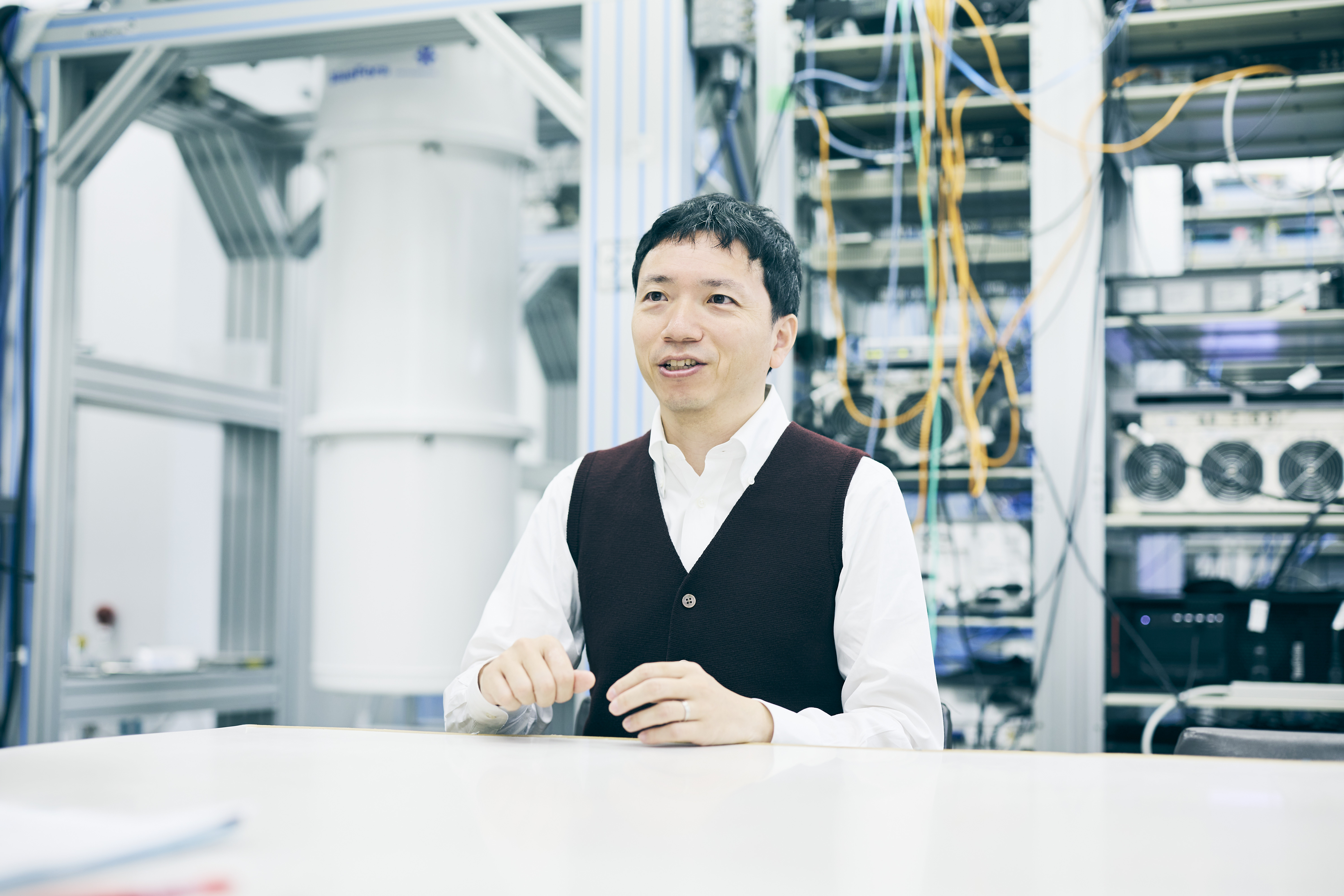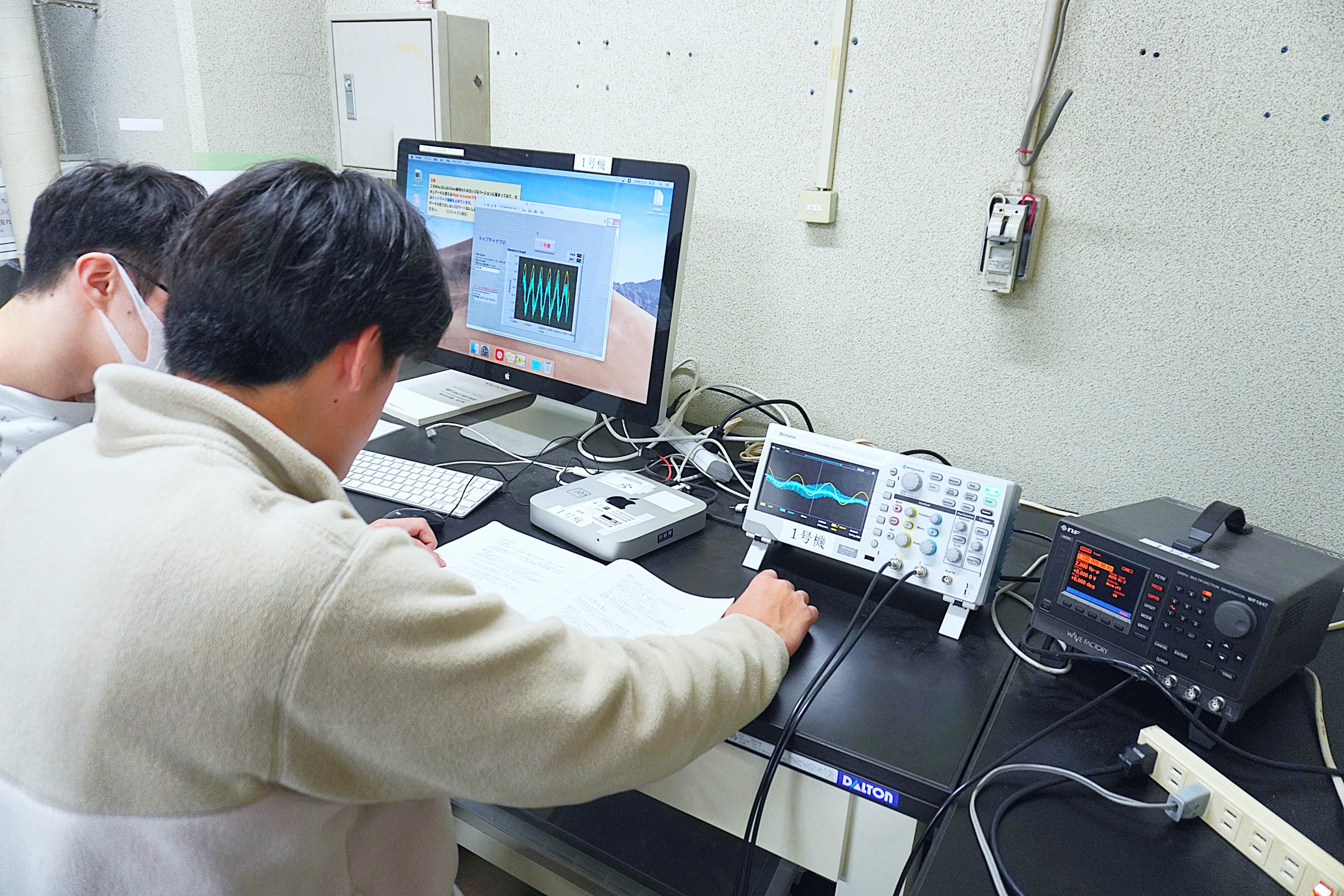Do you know how physics courses are conducted? Let’s look at one of the typical courses in the Department of Physics at the Faculty of Science Division I, that centers on lab experiments. The course runs from the first semester through the second semester, covering a full school year. Moreover, the courses continue from the first to the third year and gradually progress in difficulty, as the course names — General Physics Laboratory 1, General Physics Laboratory 2, and General Physics Laboratory 3 — suggest.
Professor Yoshihara describes the intent of the course. “To ensure effective learning, we carefully select key topics from many fields in order to cover as broad a range of physics as possible.” In General Physics Laboratory 2, a course primarily intended for second-year students, students conduct 11 experiments over the school year, including such topics as element spectra and Brownian motion.
The course consists of six units over the year. In the first and second weeks of a unit, students run one or two experiments. In the third week, students prepare a presentation on one of the experiments, engage in discussions about the experiments in the fourth week, and then hand in a report. By repeating these integrated units that each begins with experiments, students build experience and improve their adaptability to multiple fields while furthering the skills needed to seek out and elucidate natural phenomena — the mission of the Department of Physics.

The climax of each unit comes during the discussion section in the fourth week. Working in pairs, students prepare their presentation materials in advance, covering their experiment’s principles and methods, the experimental data and analysis, and their conclusions. Following a 10-minute presentation, they engage in a 15-minute Q&A session with the instructor. These sessions are extremely intense. The instructor gives detailed comments on whether the materials were prepared and presented appropriately. Feedback on the students’ materials is very specific, beginning with pointing out typos and omissions and extending to instructions on the validity of graphs and the logical derivation of analytical results. The instructor also poses numerous questions to assess the students’ level of understanding. They can also gain many additional tips and insights by listening attentively to other student pairs’ discussions. Then, students create and submit their final reports, making use of what they learned in the discussion section.
Professor Yoshihara explains the advantages of this format. “While the hands-on experimental portion is important, equally important are studying and learning in preparation for the experiment, analyzing the results after the experiment, and concluding what can be understood from the results. Students must also discuss their results in front of others and write a report. I believe this to be a crucial process for them to reassess their true level of understanding.”

The research field of Professor Yoshihara, who is in charge of the course, involves quantum mechanics experiments using superconducting circuits. He is engaged in research aimed at establishing the technology that will underpin quantum computers, an area of very active research and development. Coming from this background, Professor Yoshihara says that it is in the General Physics Laboratory courses where he senses real growth in his students.
“Comparing the classes between the spring and autumn, I can see improvement across the board: In their preparatory studies prior to conducting the experiments, in their discussions after the experiments, and in their reports. Occasionally, students will research and present material that goes beyond the textbook or include such material in their reports. When that happens, it’s a pleasant surprise.”
When students transition to the workforce, besides broad and deep knowledge of physics, they need scientific communication skills that translate in all kinds of development settings. Moreover, the ability to accurately summarize research findings and present them effectively has become increasingly important. Hence, the need for a course inculcates and hones these varied skills in a comprehensive manner. And that is precisely what General Physics Laboratory 2 does: A course that mobilizes both hands and mind.
■ Main research themes